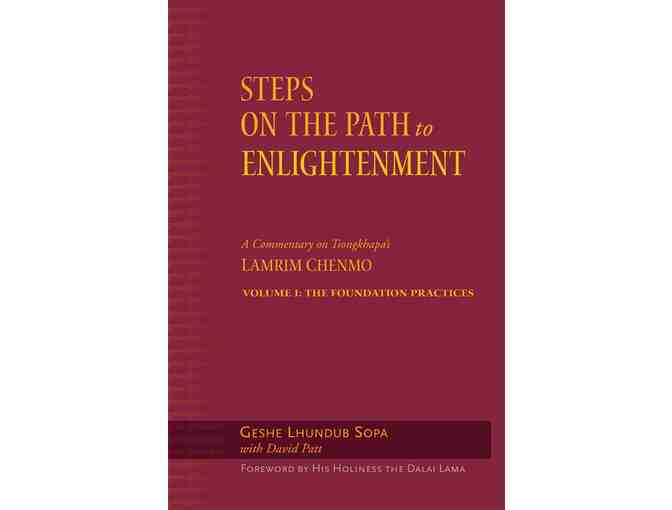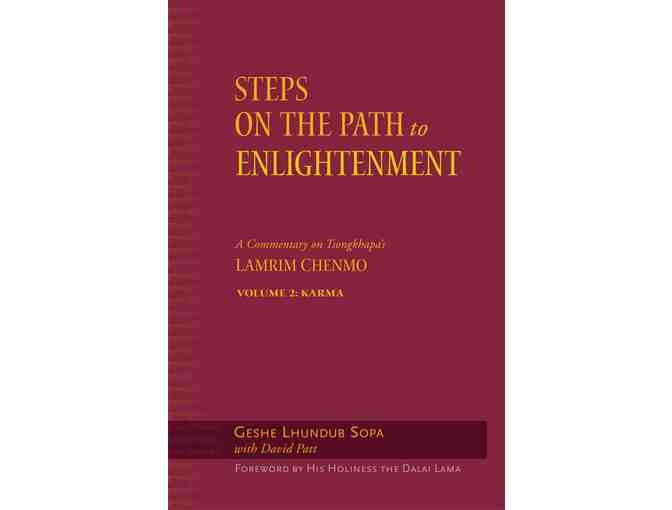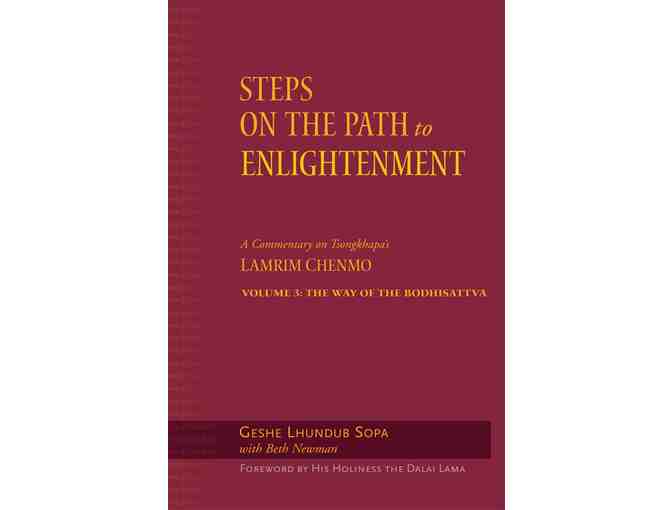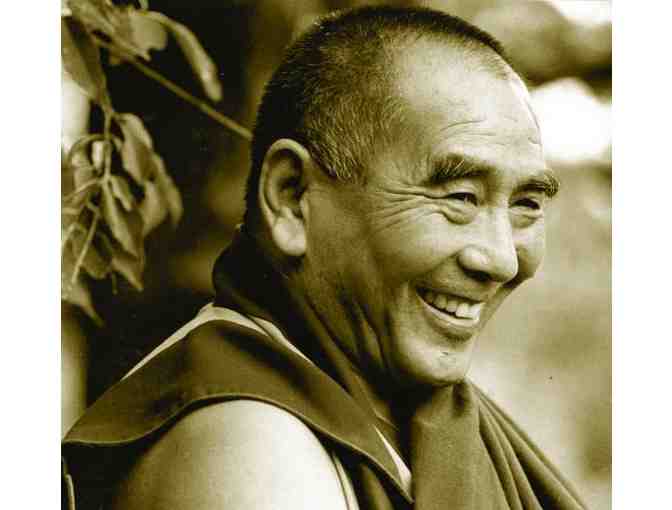Steps on the Path to Enlightenment Vol 1-3

Item Number: 362
Time Left: CLOSED




Description
“An indispensable companion to Tsongkhapa’s elegant and elaborate Great Exposition on the Stages of the Path.”—Buddhadharma
This landmark commentary on what is perhaps the most elegant Tibetan presentation of the Buddhist path offers a detailed overview of Buddhist philosophy, especially invaluable to those wanting to enact the wisdom of the Buddha in their lives.
In the Lamrim Chenmo, Tsongkhapa explains the path in terms of the three levels of practitioners: those of small capacity who seek happiness in future lives, those of medium capacity who seek liberation from the cycle of suffering, and those of great capacity who seek full enlightenment in order to benefit all beings. This volume covers the topics common to the first level: Tsongkhapa's explanations of the role of the teacher, his exhortation to take the essence of human existence, the contemplation of death and future lives, and going for the refuge.
Given his vast knowledge and his experience in both Tibetan and Western contexts, Geshe Sopa is the ideal commentator of this work for the modern student of Tibetan Buddhism.
“Those of us fortunate to have studied directly with Geshe Sopa well know what an inexhaustible fount of Buddhist learning and wisdom he is. With the publication of Volume II of his comprehensive commentary on Tsong Khapa’s classic Lamrim Chemmo, a much wider audience will further benefit from these unending riches.” —William S. Waldron, Associate Professor, Dept. of Religion, Middlebury College
Here, Geshe Sopa starts from the beginning with a faithful reading of the Lamrim Chenmo and, in the end, leaves readers with the proper tools for incorporating core Buddhist concepts into their study, teaching, and practice.
“Geshe Sopa is one of the great living lamas we have today.”—Lama Surya Das, author of Awakening the Buddha Within
Geshe Lhundub Sopa’s Steps on the Path to Enlightenment is a landmark commentary on what is perhaps the most elaborate and elegant Tibetan presentation of the Buddhist path, Tsongkhapa’s monumental Lamrim Chenmo. In this third volume of five, readers are acquainted with the bodhisattva’s path and the altruistic desire to make service to others the driving force of spiritual development.
It begins with an explanation of what distinguishes the Mahayana practitioner from other Buddhists and goes on to describe the nature of bodhichitta. Geshe Sopa then provides a detailed commentary on the two methods to develop this awakening attitude: the techniques of sevenfold cause-and-effect and exchanging self and other.
While bodhichitta’s significance in Mahayana Buddhism is universally known, Geshe Sopa illustrates how bodhichitta can motivate a devoted practitioner toward complete enlightenment and how this is accomplished through the performance of the bodhisattva perfections. Whether engaged in a scholarly study or personal practice of theLamrim Chenmo, Geshe Sopa’s guiding voice leads readers to a deeper understanding and appreciation of the bodhisattva way.